Hello,
Welcome to another article from Serfdom Road.
Let The Games Begin
“Give them bread and circuses and they will never revolt.” Decimus Junius Juvenalis (b. 55 AD, d. 128 AD)
“The evil was not in bread and circuses, per se, but in the willingness of the people to sell their rights as free men for full bellies and the excitement of the games which would serve to distract them from the other human hungers which bread and circuses can never appease.” Marcus Tullius Cicero (b. 106 BC, d. 43 BC)
A memorable scene, from the movie Gladiator (2000), depicts Russell Crowe’s character, Maximus, after being victorious against all opponents in the colosseum, declaring, “Are you not entertained?! Are you not entertained?! Is this not why you are here?!”.
This line expresses Maximus’ anger at how slaughter and brutal death in the colosseum had become a macabre spectacle to be enjoyed by the glaring masses.
The elite class of the day had funded this distasteful form of entertainment, but it is the crowd, willing the bloodshed to continue, that make it all happen.
This period of the Roman Empire was the beginning of the end for one of the greatest civilizations ever to exist.
The games became a political weapon, whereby those that wanted greater power and influence would organise these games to increase their political rank, or to maintain their dominance.
The colosseum of the Roman Empire also became a useful distraction for the political elite of the day.
The public were not concerned with the collapsing civilization around them, due to the actions of the political elite, they were only concerned with the entertainment of the day - the colosseum.
Today, modern games, or sports, are not too dissimilar to that of the games of the Roman Empire.
Those with money to burn will buy sports teams as a show of grandeur and wealth.
Politicians battle to host the next football World Cup, or the Summer Olympics and spend immense amounts of taxpayer’s money to fund the construction of new and ever grander stadia.
Why?
Modern civilization is also in a state of accelerated decline - inflation, war, corruption, moral decline and extreme political divisions are common symptoms.
Symptoms of ever greater State control and propaganda.
Distractions overt attention away from the State and maintain an ignorant and captivated populace.
The crowds of today need their opium.
Sport as A Drug
Why do we play sports?
Is it to keep fit and stay in shape?
Is it a substitute for the battlefield of the Middle Ages? A way to channel our most aggressive and violent impulses?
For anyone that has played a sport, you will know it triggers intense excitement.
The heart beats faster and the threat of loss (or death) will release adrenaline.
The anticipation becomes euphoria at the arrival of a decisive victory.
So why do people also watch sports?
Because it is for the exact same reason why we play sports - excitement.
However, the excitement triggered by an adrenaline rush is also accompanied by stress and anxiety.
You are not just watching a boxer about to land a knockout punch on your favourite boxer - your body is reacting as if you are about to be knocked-out.
There have been studies on the effects of sporting events on the heart, including one on the “Increase of sudden cardiac deaths in Switzerland during the 2002 FIFA World Cup”.
Even if you just consider the positive excitement felt as your favourite football team scores a last-minute goal to win a trophy - it is just a simulation.
Sure, you may feel a sense of euphoria but at what cost?
Did you spend the previous winter months training hard in the cold, rain and snow to be prepared to score that last-minute goal?
Your euphoria is felt due to a simulation because you did not suffer for it.
Watching sport is like watching porn - it simulates a reality that does not exist.
The euphoria passes and you are left feeling empty, until the next match.
Now we live in a world where football is not just 90 mins a week, it is 24/7, 365 days a year.
TV programmes, TV channels, internet forums, radio shows, the newspapers, the magazines, chats in the pub or the office etc.
Who will you sign in the next transfer window?
Is your manager about to get the sack?
What do the experts think about the referee’s decision to award a penalty?
Was it really offside?
This weekly ritual occurs in all sports, not just football.
Where men used to discuss the troubles of the day over a cigarette, men now inhale their custard-flavoured vape while arguing over whether a player should be on the left or right-side of the pitch.
You are bombarded by triggers to your nervous system 24/7 - excitement, stress, anxiety, excitement, stress, anxiety and so on.
Where you may have only dedicated 90 mins per week on a football match, you are now consumed daily by distractions - you lose precious time that can serve to provide more meaning to your life.
Where is the reward? Your team won? So what?
You are still going to be trapped in the same life, the same routine, again and again.
Sport just simulates a high risk-reward event in the mind and the body, while you slump yourself on the sofa eating pizza and nachos and drink beer.
What would happen if you experienced that same stress and anxiety to manifest a greater life for yourself through action? A real euphoria.
Now there are video games.
You can create a simulation of a simulation.
It is not enough that you hope and pray your team is promoted to the next division, you can also satisfy that dream yourself by playing a video game.
Another farcical aspect of sport, particularly team sports, is the division that is created and incited.
“You played badly on Saturday, we played great.”
What is this “we”?
Did you attend the training sessions?
Did you create the strategy for the game?
Did your manager at work give you a promotion or a pay-rise because your team won last Saturday?
Has your life improved in any meaningful and lasting way because your team is top of the table?
If you think, “Well, yeah, I feel amazing!”, then you are only proving the point that sport is just like porn - a drug; a simulation.
The state of euphoria you feel did not arrive at the expense of a sacrifice on your part.
Then there is the division between fans of opposing teams - “Ah, I hate Man Utd fans!”.
So you hate fans of a team that beat your team, when both sets of fans contributed nothing to the success or failure of either side?
This is not meant to be a critique of sport and group all sport fans as knuckle-dragging apes. There is nothing wrong with seeking joy in life. However, it is important to be aware of what is healthy and what is not - is your pleasure-seeking part sacrificing a more interesting and meaningful life for yourself?
Be honest with yourself - what can you actually talk about in a conversation?
Whether you’re at work, a party or a date, do your first two or three conversation starters revolve around: “Did you watch the football on the weekend?”, “Have you seen that latest Netflix series?” and “Have you watched anything interesting lately?”.
If “Yes”, then it might be worth questioning why all you can talk about revolves around distractions on a screen and nothing interesting about yourself.
A more extreme unhealthy behaviour that emanates from watching sport, at least in football, is hooliganism.
Hooliganism is a term to describe the aggressive and violent behaviour of fans towards other fans, teams and match officials.
While hooliganism started in the 1960s, it is something that only really became a problem and earned media-attention in the 1980s - around the same time major sponsorship deals were being signed in football.
Is it just a coincidence that major capital inflows into sport paralleled a display of more violent and aggressive behaviour from fans?
This new money, especially in the UK, would later take English football global with the dawn of the English Premier League in 1992.
In fact, the creation of the English Premier League was really a story of television rights and revenue, not really about football.
The better clubs of the day wanted to command more television revenue and rights and an opportunity appeared, when ITV and BSkyB started a bidding war to televise a new league that would be a breakaway from the current Football League.
BSkyB, founded by media mogul Keith Rupert Murdoch won the war.
The English Premier League is now viewed by more fans than the NFL or the NBA.
Moneyball
The corporate elite backing all major sporting events today know sport is just a simulation, a drug, a trigger for adrenaline, and they will do what they can to get as many eyes glued to the TV screen as possible.
Like most drugs, the user pays a high price to get high.
The price of a season ticket to watch all home games of an English Premier League team ranges from 490 GBP to 3,000 GBP.
The price for a ticket for one match can be as high as 103 GBP.
Placing professional football matches equal to live music events, in terms of cost.
Another major sporting event, the NFL Super Bowl, the biggest event in the NFL calendar, would cost you at least $2,000 - the most expensive last-minute ticket being resold at $45,000.
Then there is the cost of transportation, accommodation and food and drink.
The NFL Super Bowl in 1967, adjusted for inflation, would have only cost $90.
It is not inflation that causes the cost to watch a sporting event to increase, it is the hype and mania that surrounds the event, fueled by the corporate elite that fund the events.
To give some perspective on the money generated by sporting events, the NFL generated revenue of nearly $12bn in 2022, while the English Premier League clubs generated revenue of nearly 7bn GBP.
There is also the ever-increasing cost of transfers in the English Premier League.
The first three transfers over 100m GBP have all occurred in the last season or two.
Then there is the net worth of the owners of clubs in the English Premier League: Sheikh Mansour, owner of Manchester City ($30bn); Sir Jim Ratcliffe, owner of Manchester United ($27bn); Shahid Khan, owner of Fulham ($12bn); Stan Kroenke, owner of Arsenal ($8bn); and Joe Lewis, owner of Tottenham Hotspur ($8bn).
Rich and powerful men compete to own the best clubs in the world, because they help them achieve a new status - a modern-day emperor.
They do not just own the club, they own the fans - millions upon millions of them.
Most football fans today may not support their local team but they do mostly remain loyal - the fans are an intangible asset of a club, as a business.
Even during the unpleasant period, at least for Newcastle United fans, when owner Mike Ashley was deeply unpopular, he probably relished being hated, because he was hated by millions of people he knew would never leave the club.
It is like Apple Inc. developing the worst smartphone ever and knowing they will still have a guaranteed revenue stream because they have customers that will never leave.
A more bizarre consequence of high capital flows into sport, is the focus on the half-time 30-second ads during the NFL Super Bowl - recently, 30 seconds would cost nearly $7,000,000.
The last NFL Super Bowl was watched by nearly 124m people - so a 30 second ad would cost $0.18 per person, while regular TV ads can cost less $0.01 per person.
Corporations are paying 18x the ad cost to reach about one-third of the US population at the same time.
By watching live sport, you are not just a spectator, you are also the participant of an intense advertising campaign that leverages your excited emotional state.
Your grandfather’s generation likely just dedicated 2 hours a week to watch sport at the cost of a loaf of bread and that was it.
Sport is not just a time-drain, or even a money-drain, it is also a brain-drain - an opportunity for corporations to target as many people as possible, at the same time, and influence them to continue a life of mediocrity.
Gambling
A darker side of sporting events that has a greater impact on the spectator is gambling.
Today you can create a bet on almost any event occurring.
The result of a coin toss or how often Tom Brady will be mentioned during the NFL Super Bowl.
When early sporting bets were just on the result of a match, bets have now gone from the sublime to the ridiculous - why?
To give as many opportunities as possible for people to gamble.
In 2023, Americans wagered $119.8bn on legal sports betting - that’s more than the GDP of Ecuador.
It is estimated that 3% of the US population has at least a “moderate” gambling problem.
The lure of gambling, and the money at stake, has also lead to many betting scandals.
One of the earliest scandals was during the 1919 World Series Major League Baseball tournament where members of the Chicago White Sox threw the game (purposely lost) against the Cincinnati Reds.
Since then there have been countless match fixes in every sport all over the world.
It is also not surprising that many gambling addicts are actual players themselves.
One sad story is that of former professional footballer, Matthew Etherington (b. 1981) who played for Tottenham Hotspur, West Ham Utd and Stoke City.
“Etherington revealed after joining Stoke from West Ham in January last year that he had run up debts of around £800,000 and lost more than £1.5m betting on greyhounds, horses and poker.”
“Etherington received a £300,000 loan while playing for his former club West Ham to help with his gambling debts, and it is understood Stoke have provided similar assistance.” [The Guardian, 2010]
“Etherington, who retired in December 2014 after suffering a back injury, says his then wife left him after his family raised concerns over his habit and admitted his problem turned him into a ‘liar’.” [Metro, 2015]
Fortunately, these stories are not too common but they are a symptom of the inflow of vast sums of money into sport.
The tremendous inflow of money into sport and the lure of an ever greater gambling win has also created an environment that incentivizes cheating.
One of the most infamous stories of cheating in sport is the story of former cyclist Lance Armstrong (b. 1971).
In 2012, a United States Anti-Doping Agency investigation concluded that Armstrong had used performance-enhancing drugs over the course of his career.
Armstrong was later banned for life from professional cycling events and had all of his past victories erased from the record.
The professional sport of cycling that was broadcast and available to watch many decades ago, for the pure enjoyment of watching incredible athletes endure harsh challenges, had mutated into a winner-takes-all, high-stakes game.
There are many other stories of doping (consuming illegal substances to gain an advantage over the competition) in sport, from athletics to football.
All a consequence of the money and prestige at stake for the competitors.
Maybe one solution would be to allow all athletes to take whatever performance-enhancing drugs they wish and then let the best athlete win.
However, this does not help the real issue: sport has been hijacked by the political and corporate elite, to elevate the athlete to the level of a film or pop star, as another distraction for the public.
False Hope
A less obvious darker side of sport is the hope - the dreams installed in the minds of children that they too can become the next Lionel Messi, LeBron James or Tom Brady.
There are about 6 million male UK citizens at the age of a professional footballer and only 11 will wear the England shirt at any one match.
With odds like that, why would anyone think this is possible?
Why are children pushing their parents for the latest kit for the new season, every season?
Why do children need to wear the same boots as Lionel Messi?
Because, like any addiction, the earlier it starts, the more embedded it is in the mind.
Children from decades ago would quite happily play sports out on the street and nothing more - no dreams of being the next star, no video games, no desire for the latest kit - because sports stars decades ago were not among the super wealthy and famous.
Football in the UK had been doing just fine for about 100 years before the dawn of the English Premier League.
Football wasn’t even seen as a business, let alone a profitable one for those 100 years.
Capital flowed into football, and sport in general, for a reason - to elevate athletes to the level of a pop star, to generate artificial demand for more sport, more gambling and more false hope.
Sport has now replaced religion.
Families gather together, not for church, but for matchday.
Sport as a form of entertainment is now a drain on your time and your income.
Sport is now a tool for spin doctors and ambitious politicians.
Political Football
"The Beating Heart Of Rome Is Not The Marble Of The Senate, It's The Sand Of The Colosseum. He'll Bring Them Death - And They Will Love Him For It." Gracchus, Gladiator
All forms of entertainment, sport included, are powerful tools for the politician.
Entertainment is a distraction; an escape from reality.
Not always unhealthy; unless it is a toxic drain on your time and money.
The politician needs distractions, because otherwise you would see the problems they cause and are unable, or unwilling, to solve.
Football, and sport in general, is so popular in the UK there has now been a Department for Culture, Media and Sport since 1997 - the year Tony Blair (b. 1953) became UK Prime Minister.
Why does the government need to be involved in the matters of 22 men kicking a bag of air around on a patch of grass for 90 minutes?
Why are media and sport under the responsibility of one minister, unless sport really does have enough influence over the people that it cannot be outside the grasp of the politician, and is seen equal to media and entertainment?
Why is William, the Prince of Wales, the chairman of the Football Association?
In fact, the Football Association was founded at The Freemason’s Tavern, London, in 1863, which also served as a venue for the Union Grand Lodge of England.
Not exactly the organic grass-roots story of the birth of a nation’s favourite sport many are lead to believe.
In more recent times, former Football Association chairmen, Greg Dyke (b. 1947), from 2013-2016, has also been Director-General of the BBC, Chairman of the British Film Institute, Vice President for Television of BAFTA and Chairman of the London Film School.
Why did the FA hire someone with extensive media experience to manage the UK’s football governing body? Including experience at the BBC, which is a de facto government entity.
Later in the 20th century, the Summer Olympics of 1936, in Berlin, was used as a political football.
Adolf Hitler, the Führer of Germany (b. 1889, d. 1945) used the Summer Olympics as a demonstration of German strength and power.
They were also used as a political football by other nations as they threatened a boycott due to Hitler’s antisemitism.
Other Summer Olympics have been heavily-politicized - most notably, the 1972 games in Munich, Germany, that resulted in the kidnapping of 9 Israeli athletes and the death of 2 by the Palestinian militant organization Black September.
There are also the sport stars that became politicians:
Prime Minister of Hungary and former footballer, Viktor Orbán (b. 1963);
former Prime Minister of Pakistan and former cricketer, Imran Khan (b. 1952);
former footballer and former Minister of Sports for Guinea, Titi Camara (b. 1972);
former footballer and former Turkish politician, Hakan Şükür (b. 1971);
former footballer and former President of Liberia, George Weah (b. 1966); and
former boxer and Ukrainian politician, Vitali Klitschko (b. 1971)
A surreal example of the dominance and power of football’s leading governing body, FIFA, is in the story of an Argentine frigate detained at a Ghanaian port, in 2012.
“On December 22, 2001, the day he took office as President of the Nation, Adolfo Rodríguez Saá announced the default. “We are going to take the bull by the horns. Let's talk about the external debt. First of all, I announce that the Argentine State will suspend payment of the foreign debt.””
Vulture Funds in the Argentine economy bought Argentine securities on the verge of bankruptcy, at a percentage lower than their nominal value.
Later, in 2012, the Frigate Libertad began its classic annual tour around the world - it has been a training ship in the Argentine navy since 1963.
They arrived at the port of Tema, in Ghana.
The Supreme Court of Ghana then determined the Argentine frigate would be seized as collateral for a debt that the Argentine State maintained with a vulture fund.
Then entered the influence of sport to resolve this problem.
Ernesto Cherquis Bialo (b. 1940) was spokesperson for Julio Humberto Grondona (b. 1931, d. 2014), from 2009 until his death.
Bialo would later tell the story of a direct intervention by the president of AFA and vice president of FIFA, in favor of the release of the Frigate Libertad.
According to Bailo, Grondona called FIFA to make a complaint against Ghana.
FIFA told Grondona, there was a complaint from Cape Verde against Ghana for document falsification of the youth team.
Bailo later said: “From that moment on, he started searching for the phone number of the President of the Ghana Football Federation, Kwesi Nyantakyi, who is also an Auxiliary Member of the Supreme Court of Justice of Ghana. He called him, he told him: 'Listen to me, Kwesi, I have had the frigate Libertad with 300 crew members for 70 days, who are dying of hunger and overwhelm... And you have a complaint against the Ghana Football Federation for the that I can disaffiliate you. Talk to the guys at the Supreme Court and get the hell out of me because you're not playing anymore.' He then asked FIFA with whom Ghana would play the next qualifying matches and personally appointed the referees. The guy Kwesi told him 'See you at the futsal world cup to be held in Bangkok in December.' Grondona did not go to Bangkok, but he spoke to Ángel María Villar, from the Spanish Federation, who was in charge of legal matters for FIFA, and left him a task: 'Tell this boy that if the Frigate does not start, Ghana will not participate nowhere else, eh?' The president of the Ghana Federation had a great predisposition, he always said 'We're there', 'we're there', 'we're there'... Until one day he responded: 'Julio, I managed to free the frigate by talking to the group MML investor'. From which, the Frigate headed towards the port of Mar del Plata. We were already in January 2013.
Shortly after, FIFA asked him 'What do we do with Ghana? And Grondona said: 'It's not my problem, I never had any problem, let me play what I have to play.' Meanwhile, the frigate had already arrived at the port.”
A story of sovereign debt and vulture funds was resolved with the interference of leading figures of national sporting bodies.
This story highlights the intertwining of the State and sport.
Similar to Mussolini’s (b. 1883, d. 1945) depiction of facism - the merging of the State and corporations - or corporatism - here we have sportism.
Another example, again from Argentina, during the World Cup in 1978, hosted by Argentina, while under the control of the military junta.
FIFA must have known of some of the terror occurring in Argentina at the time and chose to support the military junta with major publicity.
An ironic moment during the tournament was when Swedish national coach Georg Ericson exclaimed, “Our stay here is marvelous; we’re having a good time. I haven’t seen anything that suggests that this isn’t a great country.”
One of his players, striker Ralf Edström, was arrested (later released) for talking to a civilian at a Buenos Aires café.
A similar story played out in the African country of Zaire (now the DRC), during the famed Rumble in the Jungle boxing match, in 1974, between Mohammed Ali (b. 1942, d. 2016) and George Foreman (b. 1949).
At the time Zaire was under the leadership of Mobutu Sese Seko (b. 1930, d. 1997), known for his corruption and the immense wealth he earned during his reign.
An American adviser to Seko, Fred Weymar (a German-born American citizen), convinced Seko to host the fight in Zaire, in order to generate enough publicity to help Seko’s regime.
In many cases, journalists would rather cover sport-related stories in a country, rather than crimes committed by the State, because why would any westerner care about the crimes of Seko’s government over the result of a famous boxing match?
Sport, as a form of entertainment, draws millions of spectators and money, and thereby wields as much power as the banking sector or the military-industrial complex for the politician.
Many athletes were also pressured into taking one of the COVID vaccines when they were released to the public.
As any child would love to have the same boots as Messi, or an adoring fan would wear a shirt with their favourite player’s name on their back, both would willfully take the same COVID vaccine as their chosen idol.
It is now clear the COVID vaccines have killed millions and injured just as many with side effects such as myocarditis, turbo cancers (did you hear about them before COIVD?), and even paralysis.
Footballer Tom Lockyer, at Luton Town F.C., has now collapsed on the pitch twice.
More famously is the early retirement of footballer Sergio Aguero, in 2021, at the age of 33, due to suffering with cardiac arrhythmia.
Later in the 2021 FIFA World Cup, Danish footballer, Christian Eriksen, at the age of 24, suffered a cardiac arrest.
The Wikipedia page List of association footballers who died after on-field incidents shows that there were three years where there was a peak in deaths due to either the “heart” or a “collapse”: 2010 (12), 2016 (13) and the most in 2021 (14).
Remember the first COVD vaccine was released in 2020 when there was also almost no professional football being played in the world.
If regions of relatively poor medical care systems are removed e.g. Africa, and only Europe, North America, South America and Japan are considered, the results are more striking: 2010 (6), 2016 (9) and again the most in 2021 (10).
When considering “collapse” only, 2023 remains the highest year with 3 deaths, including one incident where 25-year old Belgian goalkeeper, Arne Espeel died after saving a penalty.
During the tennis Miami Open, this year, 21-year-old Arthur Cazaux collapsed on the court.
In the same competition, in 2021, then 19-year-old Jack Draper also collapsed.
In 2023, during a press conference in Australia, former tennis star Alicia Molik ran to help a young girl that had collapsed on the court.
Also in 2023, during the Mubadala Citi Open, in Washington, Chinese tennis player Yibing Wu collapsed just weeks after also collapsing during Wimbledon.
More recently is the death of teenage Pakistani tennis player Zainab Ali Naqvi, who died of a suspected heart attack after collapsing in her room following a practice session.
Whether you agree with the link between recent collapses of athletes on their field of play and COVID vaccines or not, it is clear that athletes now have a significant influence over the thinking and motivations of their fan base.
There were virtually no athletes at the peak of their sport that spoke against the prevailing opinions of politicians on how to deal with COVID.
Even Christiano Ronaldo can cause a $4bn loss in market cap value for soft drinks giant Coca-Cola, just by removing two bottles of Coca-Cola from a press conference, during the Euro 2020 competition.
Sports stars have risen to the rank of pop stars and film stars: they are agents through which the State and corporations can influence the thinking and motivation of billions of people.
Find Your Own Colosseum
This year, around 2 billion people are expected to watch the Summer Olympic Games, in Paris.
Viewers are anticipating the event that will host the fastest, strongest and most athletic human beings on Earth.
Will we witness the next fastest human being break the 100m sprint world record?
Will we see a javelin thrown at an ever greater distance?
Will we see Jonathan Edward’s long-standing triple jump record of 60ft finally broken?
The latest European football competition, Euro 2024, has currently drawn 15 million viewers, at most, for one match.
It is difficult to argue against the case it is exciting to see a human being achieve something great or never done before - to witness someone break a physical and mental barrier set before all human beings.
To witness a man run 100m in less that 10 seconds is awe-inspiring.
To watch live on TV, in 2005, Liverpool win the UEFA Champions League against AC Milan, from 3-0 down at halftime, was an incredible experience as a teenager.
I have to be honest, in writing this article, I couldn’t help watch highlights of that final and it did bring a smile to my face.
So the argument is not, don’t watch any sport ever, it is to be aware that sport is a drug, and one pushed by the State and corporations to keep you glued to the TV and consumed 24/7.
Your emotional state is manipulated and used to channel political and corporate messaging to your brain, and more importantly, to distract you from reality.
The reality that you are a modern-day serf in a modern-day Roman Empire.
The alternative, I would place before you: find your own colosseum.
You may have your own physical limitations, as we all have, but that does not mean you can not achieve your own greatness in life.
Every time I bench press 100kg, I feel on fire…I feel invincible…I think I could stop a moving bus.
Before I lift that weight, I am anxious and nauseous, because I know I can drop that weight on my face (and have), or worse for me: fail to hit my personal best.
No amount of football and seeing my favourite team win the English Premier League can replicate that state of mind and body.
It is a state of mind and body that I can conjure as often as I desire, or as often as my body allows me too.
I do not have to wait one year in hope that my favourite team wins the league, or lifts a trophy to feel euphoric.
I can feel euphoric 4 times a week.
Nobody needs to witness this moment either. It’s just my mind and my body pushed to their limits.
When you push yourself past your own perceived physical limitations, you expand your own mental limitations.
You start to imagine conquering greater challenges you have never thought you could attempt before.
“I think you’ve been afraid your whole life.” Maximus, Gladiator
"When a man sees his end, he wants to know there was some purpose to his life." Marcus Aurelius, Gladiator
Fear is an insidious push down a path of distractions preventing you from achieving our own potential greatness.
Why achieve your own greatness when you can witness someone else doing the same, while your mind sends signals to your body that you really are on the field of play, while you mindlessly drink beer and eat pizza every weekend?
Fear of doing, fear of failure and fear of the unknown keep you locked in your simulated world of greatness.
It might be a cliché but it is important to take baby steps.
If you are intimated by the gym, just do as many pushups as you can at home. The ensuing confidence and sense of achievement will awaken a deeper, stronger and healthier part of you. This part will lead you to the gym.
In the end, the moment of greatest regret and sadness, is the realisation of what might have been, before our final breath.
Start now.
What will be your colosseum?
The stairs…the road…the gym…the mountains?
Who will be your opponent?
Your last personal best…the weather…or your own mind?
A body in motion, stays in motion.
You build momentum, strength and courage.
A strong body generates greater imagination and wonder.
Your mind guides your body to conquer greater challenges.
Euphoria erupts in your mind and body and resonates into all areas of your life.
The peace and confidence you will experience will be greater than you can barely imagine today.
"Today I saw a slave become more powerful than the Emperor of Rome." Lucilla, Gladiator
I hope you have enjoyed reading this article.
Please feel free to comment below.
Kind regards,
Le Libérateur
Please subscribe for free and share!




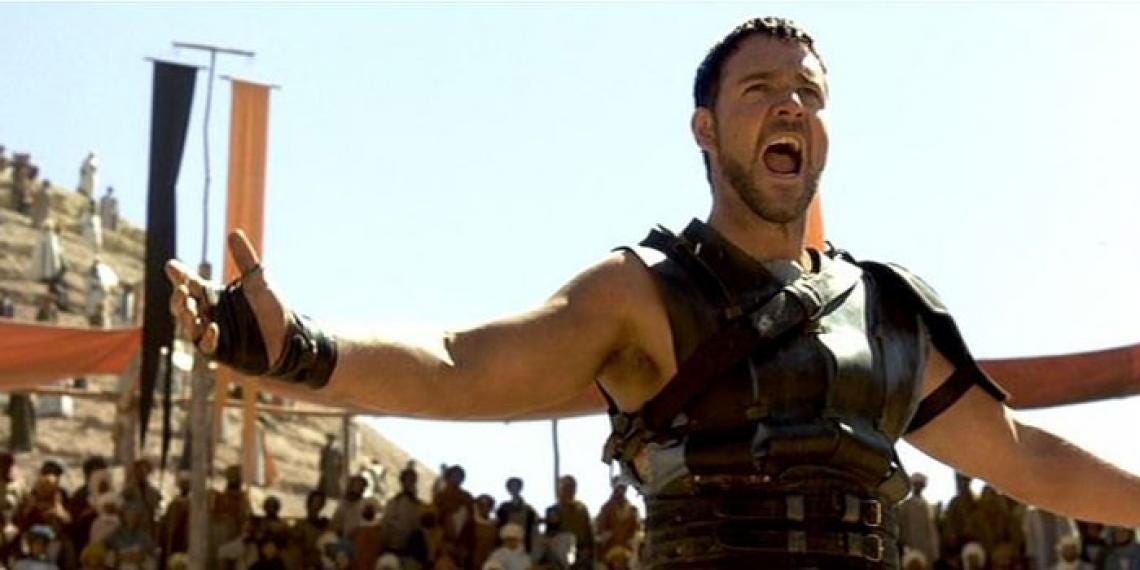

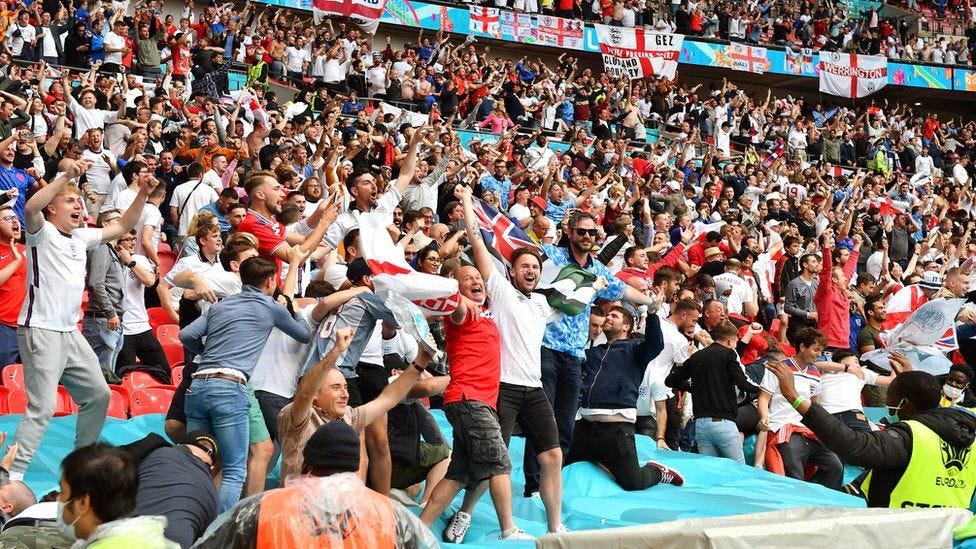


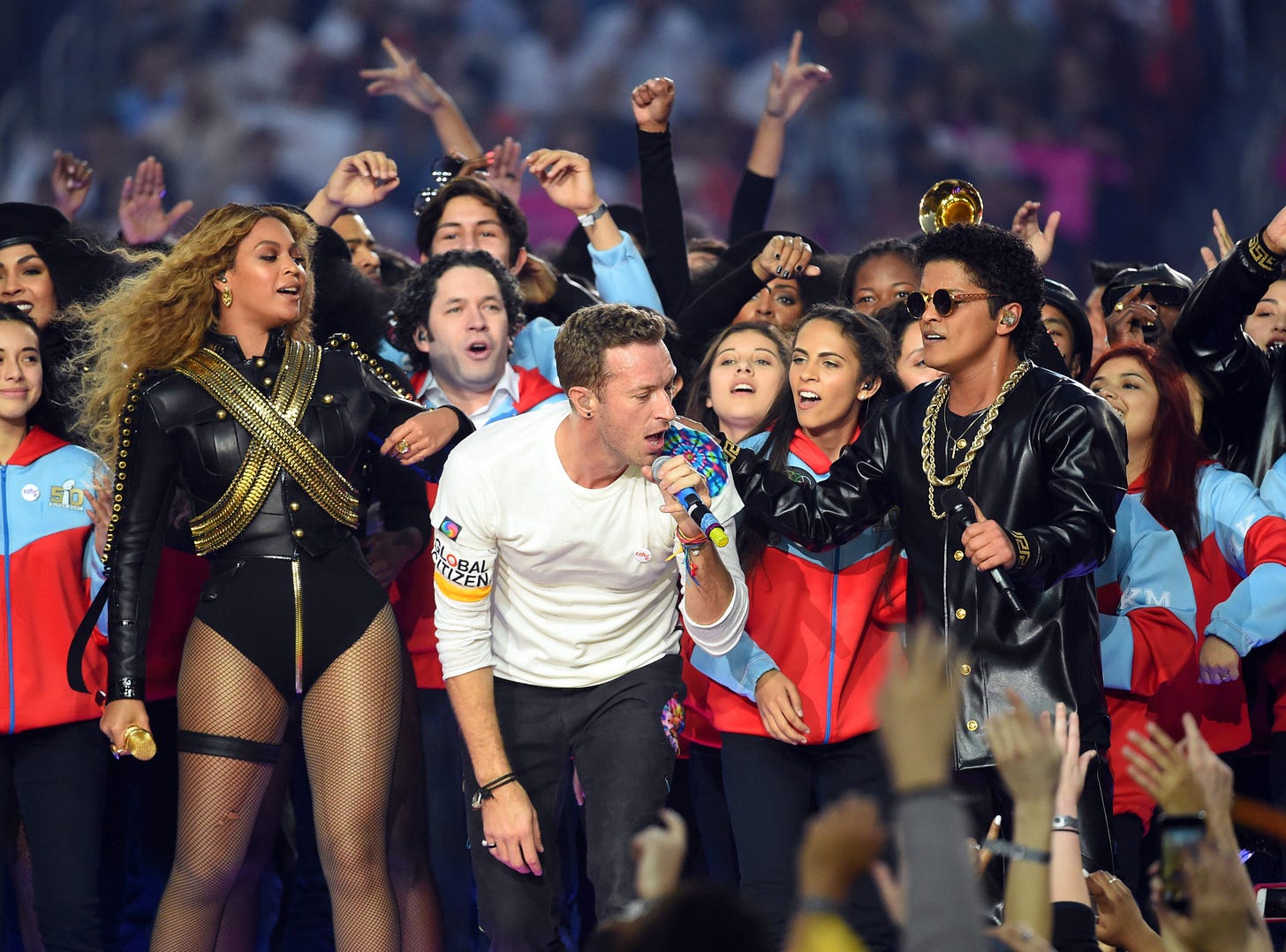
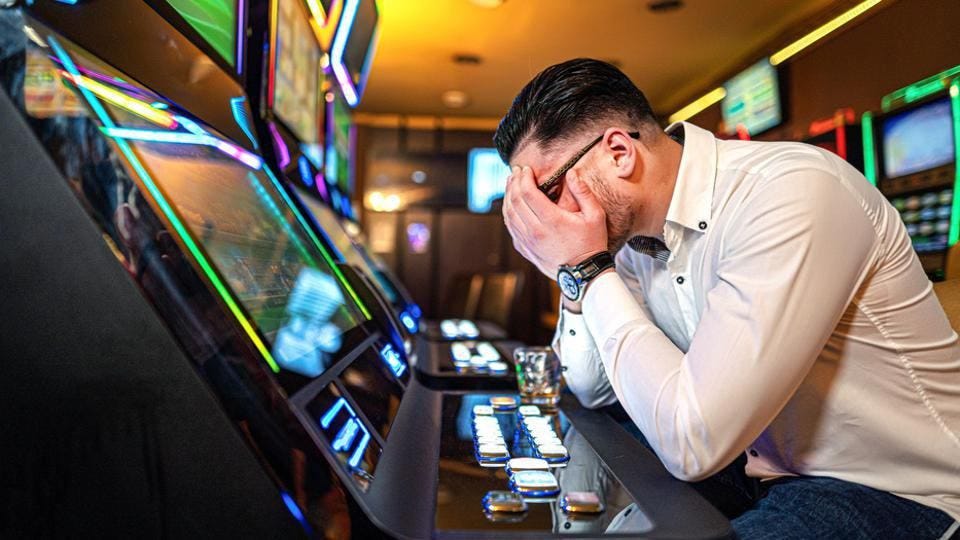
![There's Only One Jimmy Grimble - Jimmy's First Match and Goal (2000) [HD] There's Only One Jimmy Grimble - Jimmy's First Match and Goal (2000) [HD]](https://substackcdn.com/image/fetch/$s_!r67k!,w_1456,c_limit,f_auto,q_auto:good,fl_progressive:steep/https%3A%2F%2Fsubstack-post-media.s3.amazonaws.com%2Fpublic%2Fimages%2F259ce0a2-4017-4324-881d-058c97469049_1280x720.jpeg)
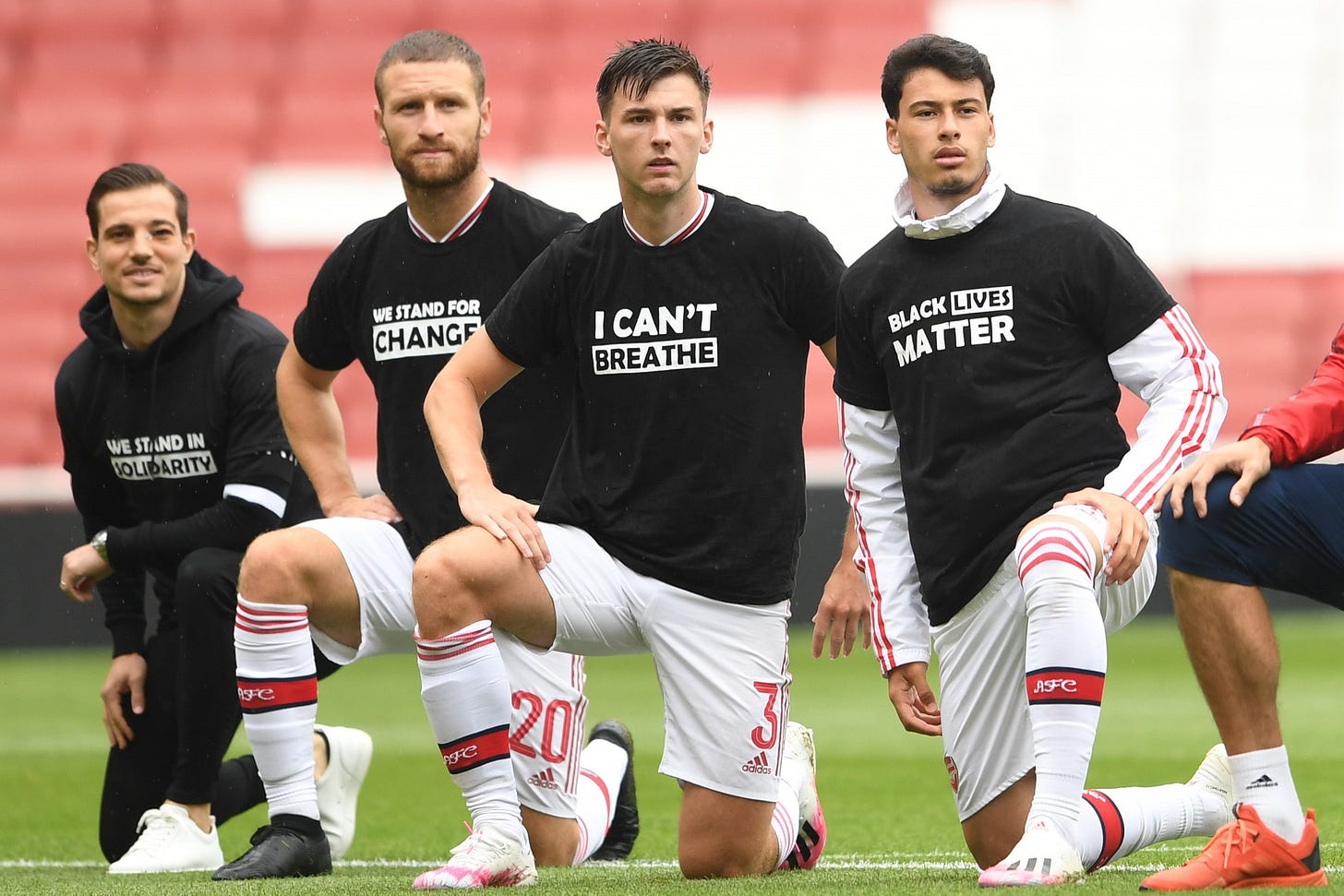
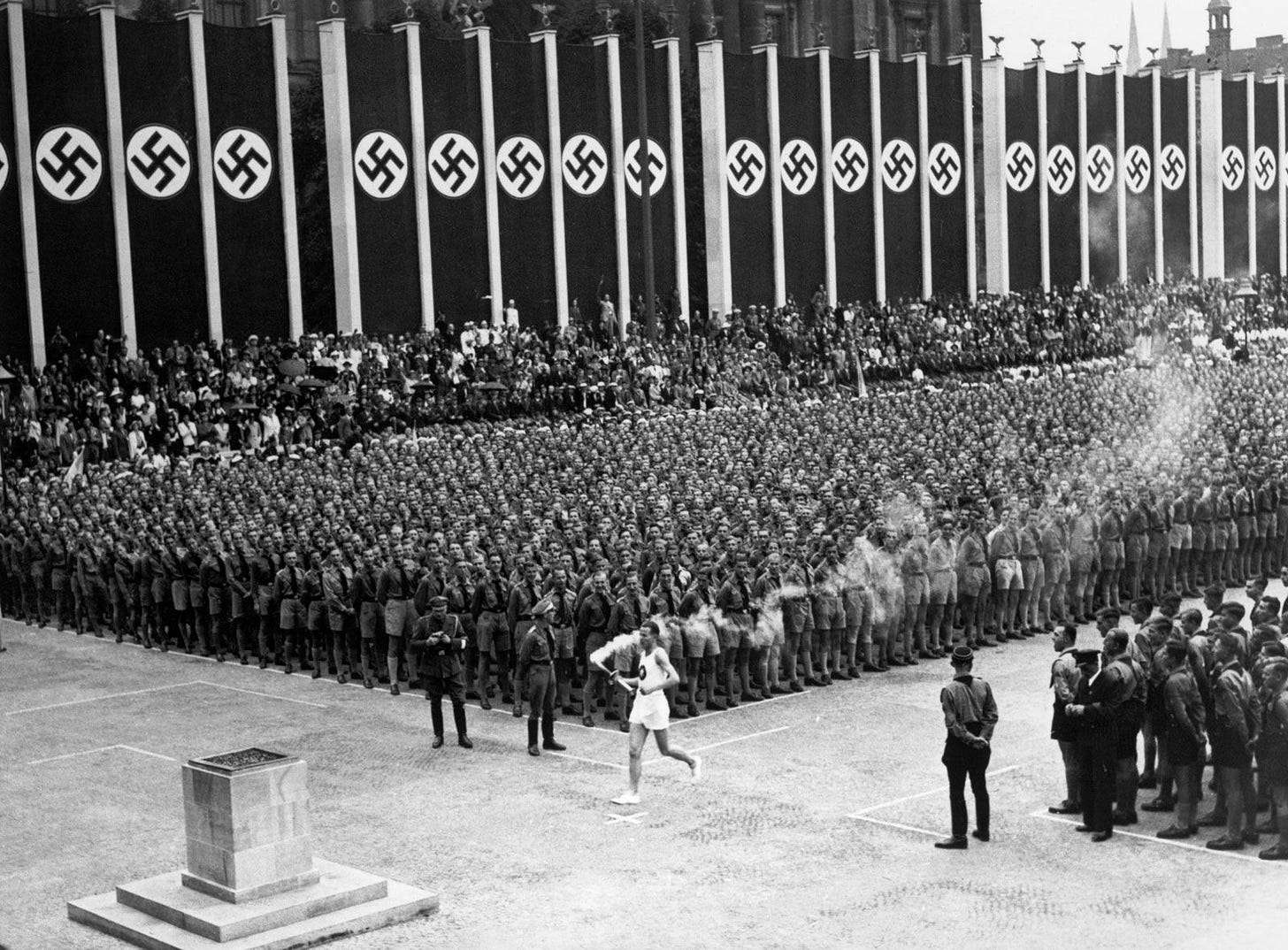
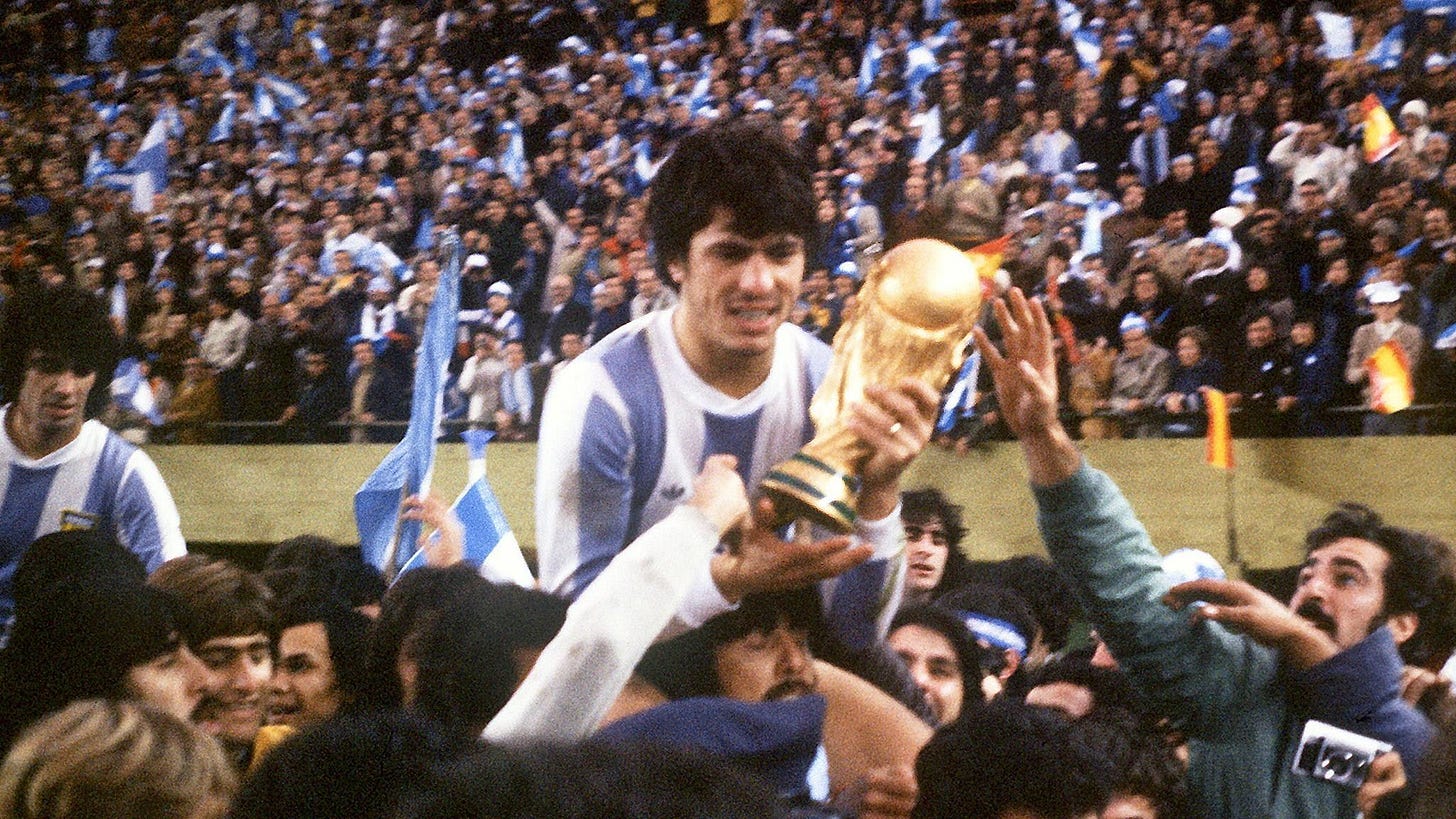


Great read! I was actually having a conversation recently along the lines of your last point. So many kids are growing up aspiring to be famous, it always happened but top three wannabe jobs now for 16-21 year olds is “influencer” 🤦🏻♀️ Anyway, for the genuinely underprivileged, who have lived on the poverty line and contended with no end of dysfunction in their childhoods, they are having the “you can be the next Marcus Rashford” rammed down their throats. Where’s the honest conversation for these people? Where is the assistance to help them understand that breaking away from poverty and dysfunction is enough and can (with hard work) lead to a good life? A life that is full. So many kids nowadays are going into adulthood without the skills they need to properly function. Especially those from households with drink and drug abuse going on. It’s tragic to witness and I can’t see how anyone can help put the brakes on this car crash 😔